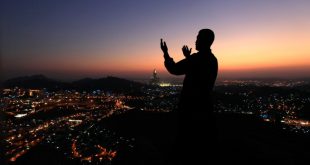During the lifetime of the prophet (PBUH) the revelation had been linking the heavens and the earth and people had been witnessing the messenger. After the prophet’s death there was a real test for the caliphs following him. Will they hold fast to the teachings and message he had left? In this essay, I am going to touch on the caliphate of Abo Bakr[1] As-Siddiq and Omar Ibn Al Khattab[2] tackling 3 min issues: 1) Focuses of each caliphate, 2) Areas of governance and leadership, 3) Accomplishments of the ummah under each caliph.
Abo Bakr (RA):
His main focus was to follow the footsteps of the prophet (PBUH). An example that may highlight this is when he sent the army of Usamah Ibn Zayed who had been appointed by the prophet (PBUH). Sending this army had a great impact on eradicating the trials. (Simple Encyclopedia of Islamic History, 2013). Abo Hurairah (RA) indicated this by saying, “By Allah, who is the only Lord, had Abo Bakr not been the caliph, Allah would not have been worshipped” then he mentioned the issue of Usama’s army.[3]
During the lifetime of the prophet (PBUH) Abo Bakr was known for his gentleness, kindheartedness and excellence, however, he demonstrated leadership when he became a caliph as he kept these qualities balanced with firmness for the sake of Allah. Abo Bakr’s first address to the Muslims is clear-cut evidence as he delineated his policies, maintaining shura and justice which he totally abode by- He said,
“… I am better than none of you. Thus, if I do good work it is incumbent on you to extend your help and support to me; if I go wrong it is your duty to put me on the right path. …. The weak among you are strong to me unless I give them full jus tice, and the strong among you are weak to me unless I receive what is due from them…. Obey me while I keep obeying Allah and His Messenger (PBUH); renounce me when I disobey Allah and His Messenger (PBUH) for obedience to me is not incumbent on you then.”[4]
There are things that clearly stand out during Abo Bakr’s caliphate: for one thing, he uprooted the apostasy movement in the Arabian Peninsula when many people were unwilling to pay zakat- the 3rd pillar of Islam. The decisive leader sent 11 armies to defeat the apostates. The mission was successfully accomplished. As a result of the battles, a number of huffaz[5] were martyred. The other thing is the compilation of the Qurán as advised by Omar (RA). Abo Bakr was hesitant at the beginning but he was convinced and the process began.
Omar Ibn Al Khattab (RA):
The prophet (PBUH) said to Omar once, “By Allah, Satan will never tread a way you pass through” (Al Bukhari 3294)
He also said, “Had there been a prophet after me, he would have been Omar” (Sunan At-Tirmizi 3686)
Omar Ibn Al Khattab showed an exemplary model for the leader. It is worth mentioning that the faculties and qualities he possessed were second to none. He was known as ‘Al Farouq’ i.e. the one who separates between haqq and baatil.
During Omar’s (RA) caliphate, the area of the Muslim state expanded to be around 22.5 hundred thousand square meters; the Muslim army opened Damascus, Ajnadeen, Jerusalem, Egypt and Persia. While it might be argued that the Muslim state was able to conquer Rome and Persia- the 2 most powerful states in the world at this time- due to their decline, the truth of the matter is that the Muslim stated was relatively new- it was about 20 years old.
Omar’s (RA) accomplishments touch many aspects, such as: political, social, administrative and financial dimensions of the Muslim state. Najeebabadi states that Omar instituted his firsts in these different spheres (2000:371). Amongst these accomplishments are: setting up the formal baitul maal (public treasury), introducing the Hijri calendar, adopting the appellation of Amirul Momineen, regulating military department, establishing a separate financial affairs department, introducing the record keeping for different things and setting the police department. Omar also was the first to allow traders of rival countries to come for business. The destitute Jews and Christians were given daily allowance. He enacted criteria for the selection of governors. Last but not least, he introduced a survey-like system to gather information about the state and the masses.
To conclude, it is nonnegotiable that the Muslim state in the caliphate of Abo Bakr and Omar has consolidated its position thanks to their invaluable efforts keeping the promises of the prophet (PBUH), abiding by the Qurán and Sunna, and applying shura and justice. As a result, most of the world at this time was subject to the Muslims and numerous people came to the fold of Islam willingly and the other practiced their teachings freely under the tolerance of the Muslims.
Bibliography
Al Sergani, R. (2006), إدارة عمر بن الخطاب. [online]. Available from <http://islamstory.com/ar/ إدارة_بن_الخطاب> [Accessed: 18th Dec 2013]
Al Sergani, R. (2008), دروس من حياة أبي بكر الصديق [online]. Available from <http://islamstory.com/ar/دروس_من_حياة_أبي_بكر_الصديق> [Accessed: 18th Dec 2013]
As-Soyooti, (2004), Tarikhul Khulafaa تاريخ الخلفاء . [Windows® PC application], n.d.: Maktabt Nizr Mustafa Al Baz
At-Tirmizi, (1998), Al Jamea Al Kabeer الجامع الكبير – سنن الترمذي. [Windows® PC application], Beirut: Dar Al Gharb Al Islamy
FDA[6], (2013), The Simple Encyclopedia of Islamic History الموسوعة الميسرة في التاريخ الإسلامي. Cairo: Iqraakotob publishing
Najeebabadi, A. (2000), The History of Islam. n.d. : Darussalam
[1] The first rightly-guided caliph after prophet Muhammed (PBUH)
[2] The second rightly-guided caliph after prophet Muhammed (PBUH)
[3] FDA , (2013), The Simple Encyclopedia of Islamic History الموسوعة الميسرة في التاريخ الإسلامي. Cairo: Iqraakotob publishing
[4] Ibn Saád, At-Tabaqaat (884 H)
[5] Those who memorise the Qurán.
[6] FDA is the acronym of Farik Derasat Islameyya, i.e. Group of Islamic studies research




